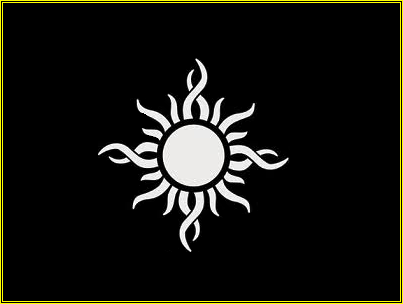Verionism: Difference between revisions
mNo edit summary |
No edit summary |
||
| Line 20: | Line 20: | ||
In later years, the Cimmerian branch of the Verion family became more closely associated with the [[Holy Church of the Divine Icebear]]. Two distinct branches of Verionism can be differentiated, the classical Verionist view being represented by Minister of Military Affairs [[Layla Verion]]. | In later years, the Cimmerian branch of the Verion family became more closely associated with the [[Holy Church of the Divine Icebear]]. Two distinct branches of Verionism can be differentiated, the classical Verionist view being represented by Minister of Military Affairs [[Layla Verion]]. | ||
[[File:VU.png|thumb|220px|right|Logo of the Natopian Verionist Union]] | [[File:VU.png|thumb|220px|right|Logo of the Natopian Verionist Union]] | ||
== | ==Classical Verionism== | ||
Examples of | Examples of classical Verionism include both the National Party and the Verionist Union in Alrodey but most notably the [[Lordship of Blackstone]], a country governed by the Verion family in line with classical Verionism. The [[Iron Company]] is also known to uphold Verionist principles. | ||
==In Modern Shirithian politics== | |||
Two Verionist parties contested the 1656 Folksraad elections: the Democratic Alliance of Elwynn and the Verionist Union. The parties didn't contest parallel in order to increase vote share. Immediately after the election, the parties formed the Verionist Bloc, which in the Folksraad represents the Verionist ideology. | |||
==People== | ==People== | ||
Revision as of 19:54, 3 January 2018
Verionism is a Shirerithian political ideology that has been around since the 5th century but rose to prominence shortly before the Kaisership of Verion I.
Philosophy
The most important principle of Verionism is the "Freedom of the Shirithian". As such, Verionism promotes a centralised nation with limited but concentrated governmental powers. Verionism is critical of Shirithian regionalism for its tendency to expand government and threaten civil liberties.
Economically, Verionism favours laisez-faire capitalism, claiming it to be the fundamental principle through which the Shirerithian economy will grow.
Shirithian nationalism is another aspect of Verionism. The Verionist political faction was vehemenently opposed to the Kildari Independence and has maintained a critical position on relations with Hamland and Jingdao.
Examples
Verionism has been a significant ideology in Elwynn, where it was promoted by the Democratic Alliance of Elwynn. It has similarities with Ayreonism and with the Conservative-Republican movement.
A clear example of Verionism was the reign of Kaiser Verion I, which saw a dramatic decrease of government powers, especially through the Verion Economic Reforms. Some say the current Chapter contains Verionist elements.
Cimmerian Verionism
In later years, the Cimmerian branch of the Verion family became more closely associated with the Holy Church of the Divine Icebear. Two distinct branches of Verionism can be differentiated, the classical Verionist view being represented by Minister of Military Affairs Layla Verion.
Classical Verionism
Examples of classical Verionism include both the National Party and the Verionist Union in Alrodey but most notably the Lordship of Blackstone, a country governed by the Verion family in line with classical Verionism. The Iron Company is also known to uphold Verionist principles.
In Modern Shirithian politics
Two Verionist parties contested the 1656 Folksraad elections: the Democratic Alliance of Elwynn and the Verionist Union. The parties didn't contest parallel in order to increase vote share. Immediately after the election, the parties formed the Verionist Bloc, which in the Folksraad represents the Verionist ideology.
People
Prominent Verionists include:
- Jack Lewis
- James Brunswick
- Jacob Darylion-Verion (Verion I)
- Michael Verion
- Layla Verion
- Alix Verion
- Aeneas Lucius
- Stephen Lewis
- Ludovic Verion
